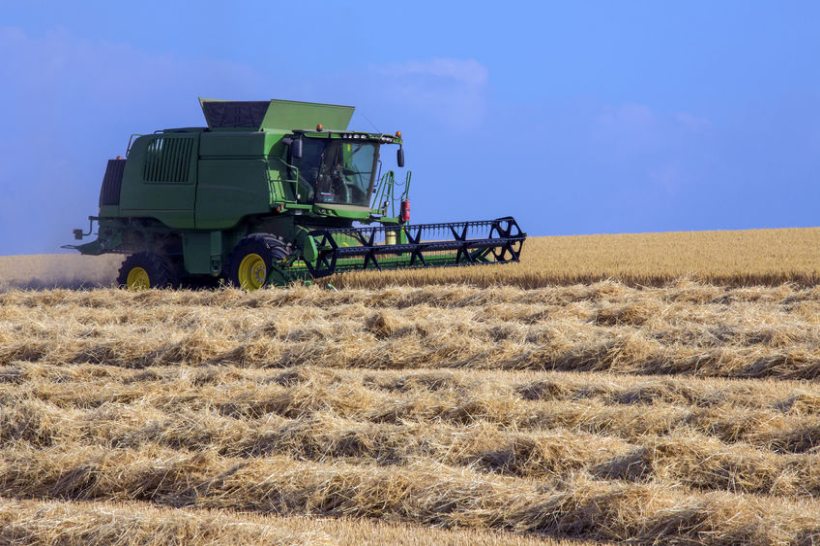
AHDB has issued its forecast of UK farming's prospects for 2021, calling the report one of the most challenging ever produced due to the impact of Covid on domestic demand and the economies of key markets.
The pandemic, Brexit and the pervasive influence of China on global commodities markets are all explored in the biannual Agri-Market Outlook.
The report is intended to help farmers and wider industry assess the potential impacts on their sector to help them plan and budget for the year to come.
Phil Bicknell, Market Intelligence Director at AHDB, said the Outlook was one of the most challenging ever produced, given the 'huge impact' of Covid on both domestic demand and the economies of key markets.
Disruptions to trade following the end of the EU exit transition period and the knock-on effects on farm are also factored into the Outlook.
“As 2021 gathers pace, the ongoing impact of Covid means that uncertainty is again the backdrop as we take our regular look ahead at our farming sectors," Mr Bicknell said.
Report highlights include a 4% rise in UK pig meat production, exceeding one million tonnes for the first time, and an 8% drop in imports, pressured by large domestic supplies and a forecast decline in consumption.
The sector is forecast to see a 7% decline in export volumes, underpinned by weaker Chinese demand and disruption to UK exports to the EU. Pig prices expected to remain under pressure.
For the beef sector, there is expected to be a 5% fall in product, due to tighter cattle availability, and a 3% decline in domestic consumption, due to easing retail sales.
However, there will be a 4% growth in imports, assuming foodservice demand improves as Covid restrictions ease, and a 3% fall in exports, largely due to lower domestic production.
The sheep sector is also forecast to see a fall in production, a 4% decline to 285,000 tonnes, AHDB's Outlook report explains.
Overall lamb throughput in 2021 forecast at 12.5 million head, 4% below year earlier levels, and imports and exports both expected to contract slightly.
Domestic demand is unlikely to maintain the growth seen in 2020 but limited global supplies may offer some price support.
GB milk production is forecast to total 12.56 billion litres for the 2020/21 season, up 0.2%; demand dynamics still uncertain due to Covid, given the importance of the out-of-home market.
Downwards pressure on prices in first half of the year is expected, with global demand mixed, depending on each country’s pandemic management and economic recovery. Trade friction with EU to impact short shelf-life products.
Production for 2021 harvest is estimated to fall back slightly to 6.55-7.98 million tonnes, plus a switch back from spring to winter planting.
For the arable sector, UK oilseed rape (OSR) production is expected to continue its decline, AHDB explains in the Outlook report.
It estimates an 18% fall back in planted area year on year for 2021 harvest, with production estimated at 0.85-1.2 million tonnes.
Imports are expected to continue to offset lower production, with Ukraine an increasingly important supplier.
A rebound in UK wheat production is expected following the smallest crop since 1980s for 2020/21 marketing season, with the new crop estimated at 12.4-15.8 million tonnes.
Global prices will be supported by the weather impacts on the South American maize crop, Covid concerns and exporters protecting domestic supply, AHDB says.
Barley prices are expected to be supported by wheat, but still at a significant discount. The report predicts a price ceiling due to maintaining export competitiveness and sizable 2019/20 crop.
The Outlook report says GB grower held potato stocks, as at end of November 2020, is estimated at 3.27 million tonnes, 12.5% more than 2019.
Stock levels up year-on-year for packing and bags but 12% lower for processing material, suggesting processors holding stocks.
Draw-down rates lower than five-year average; the challenging environment, including loss of foodservice due to Covid, loss of CIPC and phytosanitary barriers to seed potato exports to EU may see a contraction of planted area for 2021.
Despite the pandemic uncertainty, Mr Bicknell said the farming industry had 'pockets of clarity', particularly the continuation of tariff-free and quota-free trade between the UK and EU.
"That has been a critical issue for agriculture – the EU-27 is both the UK’s biggest customer and biggest supplier of a range of agricultural products," he said.
As much as policy impacts farming, the fundamentals of supply and demand remained key drivers, Mr Bicknell added.
"These are increasingly international in their scope and impact. I have no doubt that our future outside the EU will bring both opportunities and competition but I’m also conscious that it will bring increased exposure to market volatility.”
